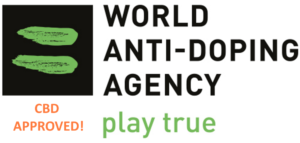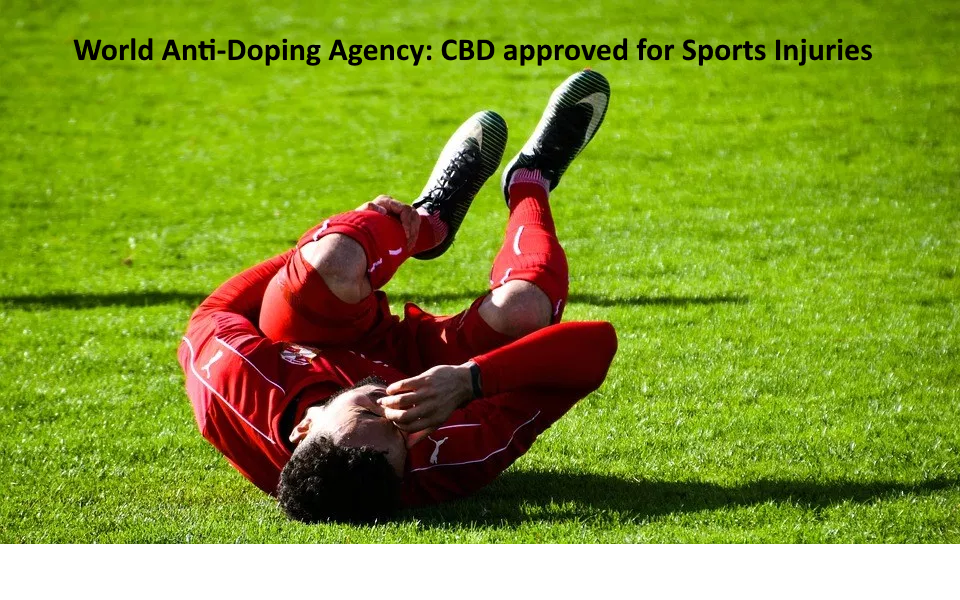The World Anti-Doping Agency (WADA) announced that it would officially remove CBD (cannabidiol) from its list of prohibited substances by the end of the year, making CBD available for the use of athletes.
As it stands, CBD use is completely banned, despite the fact that it’s a powerful and all-natural pain-reliever. Following the World Anti-Doping Agency decision, the use of CBD will be allowed, but THC will stay prohibited. Until January 1st however, 2018 rules still apply, meaning CBD is still prohibited for a few more months.
What is WADA?

World Anti-Doping Agency: CBD approved for Sports Injuries
The World Anti-Doping Agency (WADA) mission is to lead a collaborative worldwide movement for doping-free sport. Since 1999, when it was first established, it operates as an international independent agency. It’s budget comes from sport movements and governments, making it an international organization. Among its key activities you can find education for doping-free sporting environments, relevant scientific research, and monitoring of the World Anti-Doping Code (Code) – where you can find the anti-doping policies in all sports, worldwide.
WADA updates its list of prohibited substances annually based on changes in laws and medical research. “Annually, the Prohibited List review involves a very extensive stakeholder consultation process over the course of nine months,” said WADA Director General Olivier Niggli in an official statement. “In reviewing the List, experts examine such sources as: scientific and medical research, trends, and intelligence gathered from law enforcement and pharmaceutical companies in order to stay ahead of those that endeavor to cheat the system.”
CBD status has been brought to the table, since many athletes have expressed a desire to use CBD for sports injuries, due to its health benefits. As the agency in charge of setting the drug testing standards for many sports events (among them the Olympics, Ultimate Fighting Championships, and many other athletic leagues) WADA’s decision to remove CBD from the list of prohibited substances is an important one, long desired by many.
These changes are a big relief to pro-cannabis athletes such as Nate and Nick Diaz, mixed-martial artists who have been advocating for cannabis for over 10 years. Nate was issued a warning, publicly, by the USADA (United States WADA Chapter) after he admitted to using CBD after his fights. He was actually vaping CBD live during this interview. His brother Nick was suspended for half a decade for failing multiple drug tests for cannabis only.
It’s not just professional fighters that are interested in cannabis though. Michael Phelps, winner of the most Olympic medals of all time – 28 – has felt the sting of unjust cannabis laws. He was suspended for 3 months and lost a major sponsorship deal. Former NFL players Ebenezer Ekuban and Eugene Monroe also advocate for cannabis rights. Monroe was let go by the Baltimore Ravens after he became vocal about his views on legalization.
While these changes only legalize CBD for the time being, it’s a major step in the right direction and could hopefully lead to full-spectrum medical cannabis being allowed in the future.









